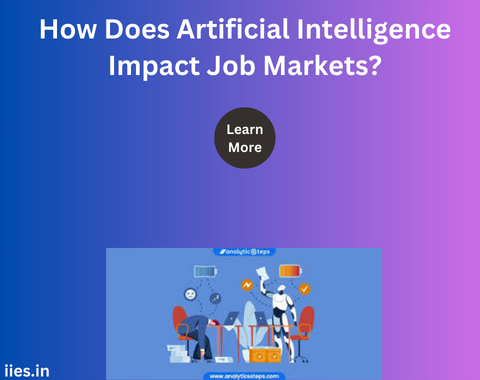Transforming Job Roles and Skill Requirements
One of the most significant impacts of AI on job markets is the transformation of job roles and the accompanying shift in skill requirements. AI technologies, such as machine learning, natural language processing, and robotics, are automating routine and repetitive tasks across various industries. This automation enables human workers to focus on more complex, creative, and strategic aspects of their jobs.
For instance, in the manufacturing sector, AI-powered robots can handle assembly line tasks with greater precision and efficiency than humans. This shift necessitates workers to upskill or reskill in areas like AI maintenance, programming, and system management. Consequently, there is an increasing demand for workers proficient in STEM (Science, Technology, Engineering, and Mathematics) fields, as well as those with strong problem-solving and analytical abilities.
Job Displacement and Creation
The narrative surrounding AI often emphasizes job displacement, where machines replace human labor. While this is a valid concern, it is essential to consider the broader picture. Historically, technological advancements have led to the creation of new job categories, and AI is no exception.
AI can create new job opportunities in various sectors. For example, the rise of AI has spurred demand for data scientists, AI specialists, and cybersecurity experts. Additionally, sectors like healthcare are witnessing the emergence of roles such as AI ethicists, who ensure that AI applications adhere to ethical standards, and AI trainers, who refine AI algorithms to improve accuracy and fairness.
Enhancing Productivity and Economic Growth
AI’s integration into the workplace can significantly enhance productivity and economic growth. By automating mundane tasks, AI allows employees to focus on higher-value activities, driving innovation and efficiency. This boost in productivity can lead to increased profitability for businesses, which may, in turn, translate into higher wages and better working conditions for employees.
Moreover, AI can help small and medium-sized enterprises (SMEs) compete with larger corporations by providing access to advanced technologies that were previously cost-prohibitive. This democratization of technology can foster a more competitive and dynamic market, promoting economic growth and job creation.
Challenges and Considerations
Despite its potential benefits, AI’s impact on job markets is not without challenges. One of the primary concerns is the digital divide, where disparities in access to technology and digital literacy can exacerbate inequality. Workers in developing countries or those from underprivileged backgrounds may face significant barriers to acquiring the skills needed for AI-driven jobs.
Another challenge is the ethical implications of AI in the workplace. Issues such as data privacy, algorithmic bias, and transparency need to be addressed to ensure that AI applications do not perpetuate or amplify existing inequalities. Policymakers, businesses, and educational institutions must collaborate to develop frameworks that promote fair and inclusive AI adoption.
Preparing for the AI-Driven Future
To navigate the evolving job market shaped by AI, a proactive approach is necessary. Governments and educational institutions must prioritize lifelong learning and continuous skill development. Vocational training programs and partnerships between industry and academia can play a pivotal role in equipping workers with the skills required for the AI-driven economy.
Businesses also have a crucial role in fostering a culture of innovation and adaptability. By investing in employee training and development, companies can ensure a smooth transition as job roles evolve. Moreover, ethical considerations should be at the forefront of AI implementation strategies to build trust and promote sustainable growth.

